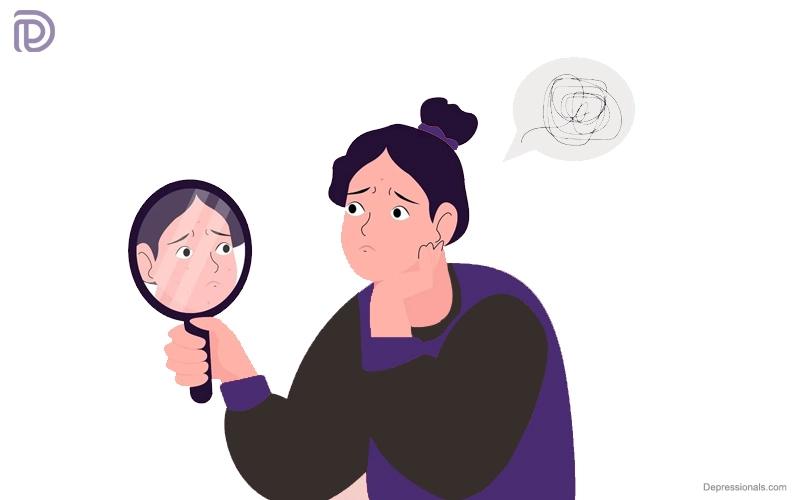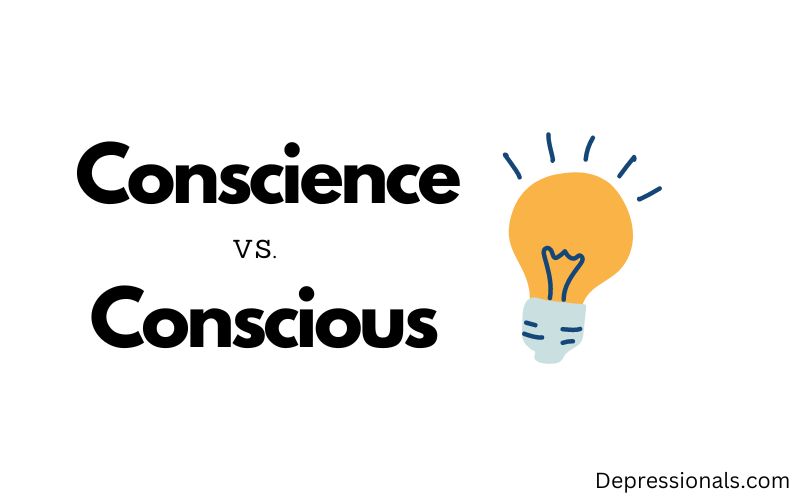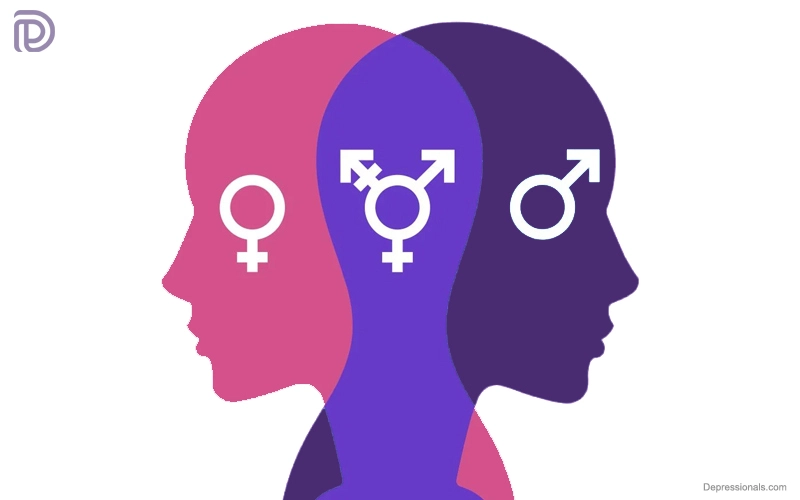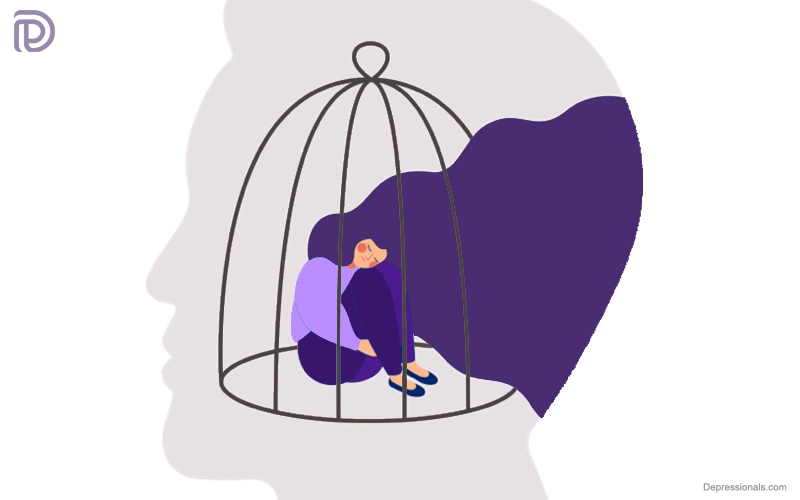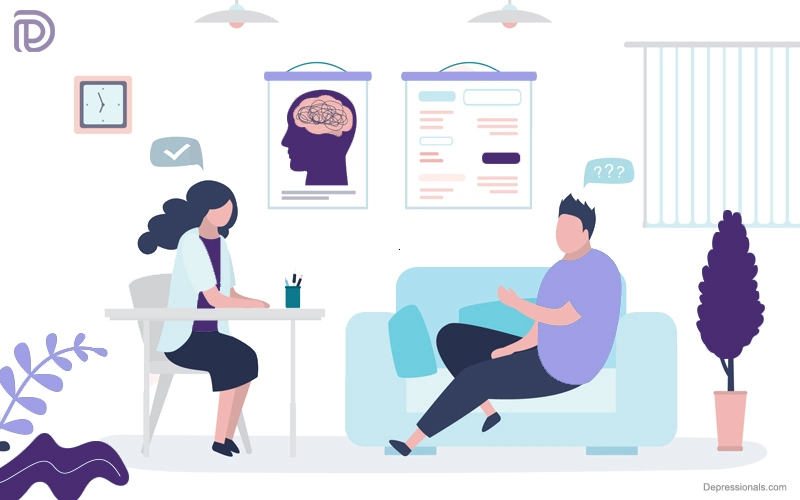Rejection sensitive dysphoria is characterized by a strong emotional reaction to negative judgments, exclusions, or criticisms beyond what most people experience. It may seem to others that RSD sufferers are overly sensitive, overly perfectionistic, or overreactive to criticism.
It is never nice to be rejected, whether it be by a crush, peers, family or co-workers. Life is full of painful experiences, but they can’t be avoided.
Some people are more resilient than others when it comes to rejection. Some people can experience an overpowering emotional response to rejection.
It is sometimes referred to as rejection sensitive dysphoria (RSD) in particularly overwhelmed in people. People with this type of disorder are extremely sensitive to criticism and rejection, whether they are real or perceived.
Although many of us can be affected, it has been suggested that those with ADHD and autism are more at risk.
Read: What is Dysphoria
Difference between rejection sensitivity and rejection sensitive dysphoria
RSD and rejection sensitivity are closely related, but they differ in subtle ways. It helps to first understand emotional dysregulation in order to understand the differences.
Emotional dysregulation and rejection sensitivity
It is common for both rejection sensitivity and RSD to have emotional dysregulation. Dysphoria doesn’t. One or more of the following can be done by people with rejection sensitivity:
- Before receiving an anticipated rejection, feel anxious and depressed.
- Negative interactions (such as neutral or vague reactions) are difficult to see other than rejection.
- React negatively to feelings of rejection, leading to behaviors such as anger, rage, depression, anxiety, etc.
RSD also involves all those things, but there’s one more component: A great deal of emotional pain can be felt by people with RSD.
What causes rejection sensitive dysphoria?
Rejection sensitive dysphoria causes heightened sensitivity to rejection and triggers easily by certain situations. The exact cause of this is unknown.
Multifactorial causes are believed to be responsible, rather than a single factor.
It is possible that RSD has its roots in childhood rejection or neglect. Parents can negatively impact their children’s self-esteem and confidence if they were overly critical or neglectful.
Many people who grow up in this parental relationship have low self-esteem and are fearful of rejection and abandonment in their own personal relationships because of this relationship.
Other circumstances can also lead to rejection sensitivity. Bullying or being teased can lead to rejection sensitivity. This is also true when romantic partners criticize or reject you.
In addition, certain people seem to be genetically predisposed to suffering from rejection sensitive dysphoria. Family history may play a role here. It is also possible to develop RSD if you have a parent or another close relative who has it.
Read: Gender Dysphoria
Link between RSD and ADHD
Individuals with ADHD may experience issues related to emotional regulation even if emotional regulation is not part of the diagnostic criteria.
People with ADHD are more likely to experience RSD cases even though RSD could affect anyone. When someone with ADHD feels rejection, whether it is real or perceived, their nervous system is instantly triggered.
An earlier study found that children aged 10–15 with ADHD are highly sensitive to feedback through virtual games. Peer rejection is more sensitive among adolescents with elevated levels of ADHD symptoms.
Some children with ADHD are unable to regulate their emotions, which could explain their problems socializing. Children who exhibit hyperactivity are also likely to react aggressively to rejection.
Children with ADHD are frequently rejected by their peers and victimized, which may exacerbate their symptoms of RSD.
Many experts are unaware of the existence of rejection syndrome since it is hard to measure. Oftentimes, this condition is overlooked or misdiagnosed because it can present like other conditions, such as depression, bipolar disorder, borderline personality disorder, or social anxiety.
Rejection sensitive dysphoria symptoms
There are a variety of symptoms associated with rejection sensitive dysphoria, so it can be difficult to diagnose.
There are several conditions that may resemble RSD, such as:
- Depression
- Social phobia
- Bipolar disorder
- Borderline personality disorder
- Post-traumatic stress disorder
This condition (as well as some of the conditions listed above) may manifest symptoms such as:
- Low self-esteem
- Withdrawal from social settings
- Fear of failure
- Unrealistic expectations
- Outbursts of emotion after rejection
- Feelings of hopelessness
- An approval-seeking attitude
- Angry and aggressive behavior
- Anxiety
It is important to note that symptoms of RSD can mimic those of other conditions, but they are primarily caused by emotional cycles, rather than by actual events.
Read: What is Stigma
How to diagnose RSD
Diagnosing RSD can be difficult. The first thing your doctor needs to do is figure out if it’s a symptom of an underlying mental health issue.
In the Diagnostic and Statistical Manual of Mental Disorders (DSM-5), rejection sensitive dysphoria isn’t recognized as a diagnosis, so you may not always be able to get a professional diagnosis.
It’s important to seek help from a counselor, psychologist, or other mental health professional to find out whether your symptoms warrant treatment.
Doctors may ask about medications and family history. You’ll probably be asked questions about how you react and feel in various situations.
You might be asked:
- Can someone hurt your feelings without making you angry or aggressive?
- What happens when you are rejected or criticized? Do you feel angry or rage?
- What do you believe when you are rejected or criticized?
- Can you please everyone?
- Are people accusing you of being oversensitive?
In addition to ADHD and autism spectrum disorders, your doctor may ask whether you have been diagnosed or treated previously for either.
Your doctor may recommend screening if you have symptoms of these conditions but have not been diagnosed. Testing will help your doctor figure out what is causing your emotional reactions.
Read: Self-Stigma
Treatment for RSD
If you suffer from this condition, your physician may recommend that you seek treatment for any underlying condition first.
This condition cannot be cured. There are medications that can relieve related symptoms like hyperactivity and depression.
Cognitive behavioral therapy
There are other behavioral interventions to reduce hypersensitivity. This is helpful in managing rejection and criticism. Therefore, you would likely be recommended psychotherapy.
People struggling with rejection sensitivity dysphoria can use this traditional method to help them cope.
Psychotherapy is an effective treatment for this problem. It helps people learn coping strategies.
We will teach you how to deal with conflict, improve communication, and overcome trauma and abuse.
Medications
You may be prescribed medication to help alleviate symptoms along with therapy.
A few medications are available without FDA approval for RSD, however, some are prescribed off-label or for other conditions.
An example of such medication is guanfacine. Avalanche is commonly prescribed to reduce blood pressure. However, it also inhibits hyperactivity and emotional responses by interfering with brain receptors.
Read: Dysgraphia
Lifestyle changes
Managing your emotional response to rejection and criticism can be difficult without traditional therapies. Here are a few things you can do on your own to manage your feelings.
For example, you may find that keeping your feelings in perspective can be helpful. You may perceive rejection or criticism as something it is not. Therefore, you should try to understand that it does not exist.”
It is understandable that hurt feelings are hard to control. But instead of outbursting when you are shunned, you should try to remain calm.
Moreover, it reduces the overall stress level that you feel, which can help you feel calmer and more relaxed. This makes controlling your emotions easier.
Alternatively, you could:
- Exercise regularly
- Maintain a healthy diet
- Get enough sleep
Complications of treatment
Several factors, including the treatments themselves, affect the potential side effects and complications of different treatments. It is therefore best to ask your healthcare provider whether side effects are possible or likely, as well as how to reduce their impact.
When to consult your doctor
It’s normal to have good days and bad days; therefore, you don’t need to see a doctor every time you have an emotional outburst.
If you feel rejected or criticized, even for a brief period of time, you should get in touch with your doctor if you feel overwhelmed by feelings of hurt, anxiety, and rage.
It is especially important to seek medical attention if rejection sensitive dysphoria is degrading your life quality.
When people are irrationally jealous of friends and family, rejection sensitivity can lead to problems in romantic relationships.
Some people stay in unhealthy relationships because of their fear of rejection. This fear can also lead to depression and anxiety.
Read: Anticipatory Anxiety
Bottom line
However, rejection sensitive dysphoria isn’t just confined to people with ADHD or autism.
Untreated symptoms can worsen, so reach out to a mental health professional if you feel overwhelmed by the consequences of rejection, hurt feelings, or criticism.
